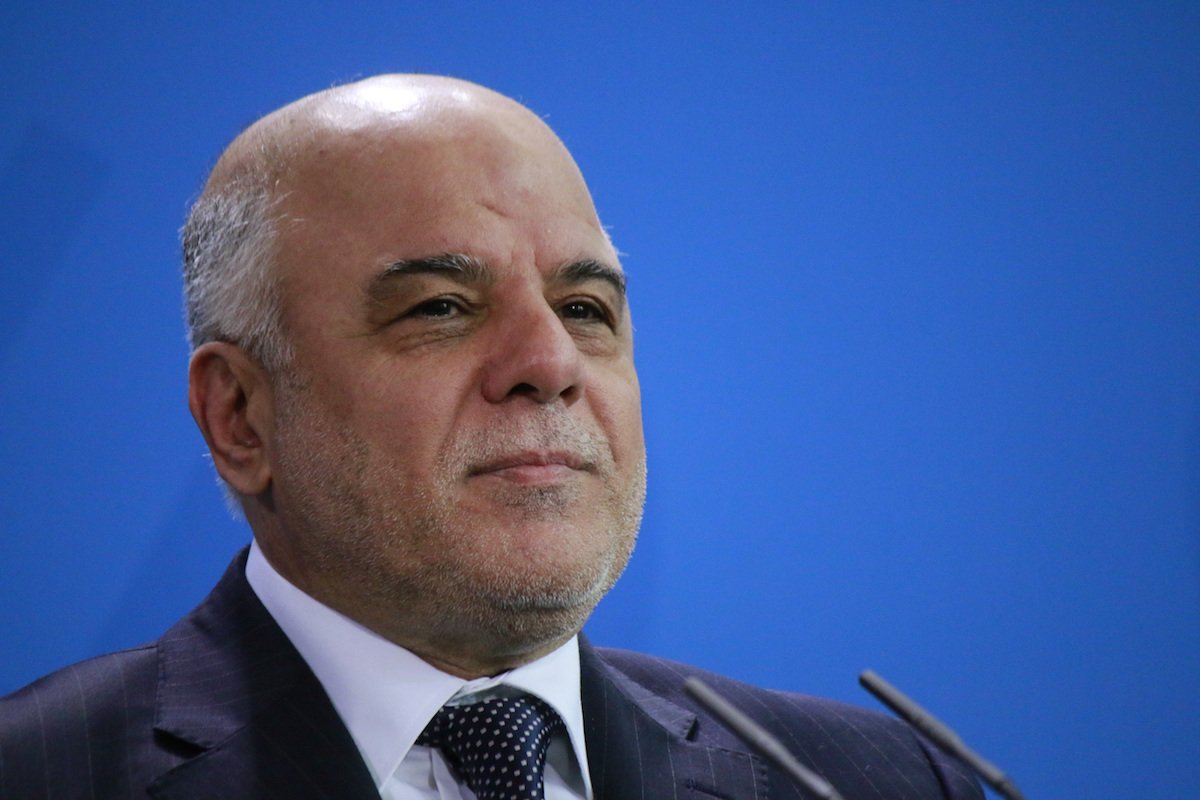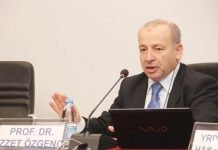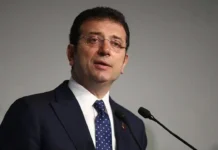The call for Iraqi Prime Minister Haider al-Abadi to halt flights to the Iraqi Kurdish region as reaction to the independence referendum held by the Kurdistan Regional Government (KRG) on Monday, has found littler response from international community. Only two international carriers, Lebanese and Egyptian national carriers, have announced they would halt flights to the Iraqi Kurdish region this week at the request of Baghdad.
Turkish Airlines (THY) has announced its flights would continue for now, as any formal request was not delivered to the company yet from Iraqi authorities. “All our scheduled flights to these two cities will be carried out as planned,” the airline said in a statement, referring to the cities of Arbil and Sulaimaniyah.
However, according to Turkish pro-government media, Turkey will suspend all international flights to and from airports operated by the KRG starting from Friday, the Turkish consulate-general in Arbil said on Wednesday. A statement posted on the consulate’s website said flights by THY, Atlas Global and Pegasus “won’t be possible” after 06:00 p.m. on Friday. It added that authorities were working to increase flights until then.
Al-Abadi had told on Tuesday the autonomous Kurdish government to hand over control of Arbil and Sulaimaniyah airports or else he would suspend direct international flights to and from Kurdistan on Friday. The Iraqi Civil Aviation Authority then sent a notice on Wednesday to foreign airline companies telling them that international flights to Arbil and Sulaimaniyah will be suspended at 15:00 GMT on Friday and only domestic flights will be allowed.
The transport minister of the KRG, Mawloud Bawah Murad, however, expressed bafflement at the move by Baghdad. “Arbil and Sulaimaniyah airports were built from the budget of the Kurdistan government,” he told a press conference in Arbil, as quoted by AFP on Wednesday.
“We want more clarifications from the Iraqi government on its demand to hand them the two airports, because we don’t understand how to give them the two airports, when they are already subject to the Iraqi Civil Aviation Authority,” he said.
The Iraqi parliament on Wednesday has asked al-Abadi to send troops to the Kurdish-held region of Kirkuk and take control of its oilfields, as the prime minister demanded that Kurdish administration “cancel” the outcome of the independence referendum. Kirkuk, claimed by the Kurds, is also home to Turkmen and Arab communities. The KRG included it in the independence referendum held on Monday.
“The government has to bring back the oilfields of Kirkuk under the control of the oil ministry,” said the resolution voted by parliament in Baghdad. It called on Abadi to “issue orders for the security forces to deploy in the disputed areas, including Kirkuk.” In a speech to parliament, Abadi renewed his ultimatum to Masoud Barzani’s KRG to hand over control of international airports by Sept. 29 or face a ban on direct international flights to the Kurdish region.
Al-Abadi, on Tuesday had stated that he would not compromise on Iraq’s unity and sovereignty, calling for control over the Kurdistan Region to be handed over. In a series of tweets, the Iraqi PM expressed his strong opposition to the referendum, threatening he would take measures against it.
“We will not compromise on Iraq’s unity or sovereignty. Iraq is strong. Some wanted to weaken it. They have miscalculated,” Abadi tweeted on his official account on Tuesday. “We have taken measures to impose federal authority according to the Iraqi constitution,” he stated in another tweet.
However, Kurdish officials have accused Baghdad of violating 55 articles of the Iraqi constitution and treating the people of the Kurdistan Region as second-class citizens. In response, they declared they would follow the path toward independence after failing to reach a true partnership with Baghdad.
In another tweet, Abadi called on the KRG to hand over oil revenue, airports, and border-crossings to Baghdad. “Oil revenues in Iraqi Kurdistan must be returned to the control of the federal authorities,” he added. “All land & air border-crossings in Iraqi Kurdistan must be returned to federal jurisdiction within [three] days.”
He went further and noted that Baghdad would suspend all international flights in the KRG. “Iraq will suspend international flights to [and] from the Kurdistan region if this order is not implemented,” Iraqi Premier added. “We will protect the rights of all Iraqis including our Kurdish citizens; we will not punish them for the mistakes of regional officials,” Abadi tweeted.
Meanwhile, Turkey’s border with northern Iraq remains open, although that does not mean it will remain so, the Turkish Customs Minister Bülent Tüfekçi said on Wednesday, adding the number of trucks passing through had decreased. Tüfenkci also said he did not believe that the Kurdish independence referendum would have a big impact on Turkish trade with Baghdad.
Turkey’s autocratic President Recep Tayyip Erdoğan has said Iraqi Kurds would go hungry if his country halts the flow of trucks and oil across the border, warning that Turkey could take military and economic measures against its neighbor after the referendum.
Trade ties between Turkey and KRG should not be affected by the recent independence referendum, Turkey’s Economy Minister Nihat Zeybekci has told the Hürriyet daily news, saying the current state of economic relations are “business as usual.”
“During the crisis with Russia in 2015, the first thing they did was [restrict] trade. They tried to teach a lesson to Turkey through trade. This was very wrong. I wouldn’t find it right to repeat this mistake in the same way [against the KRG],” Zeybekci said on Tuesday.
Zeybekci stressed that the cabinet did not take any decisions to impose sanctions on the KRG in its last meeting on September 22, saying that talking about “economic embargos” are dangerous for a country like Turkey that wants to become a regional hub of finance and trade.
“When our national interests oblige us to do otherwise, then we as the Economy Ministry will act accordingly. But our current reflex as a ministry is to make sure that our trade continues with ‘business as usual.’ There was no decision taken at the last cabinet meeting to change this view of ours [regarding trade with the KRG],” he said. Zeybekci also stated that the cabinet has not decided to close Turkey’s only border gate with the KRG, the Habur border gate.
Nechirvan Barzani, the Prime Minister of the KRG, said on Wednesday that both people in northern Iraq and Turkey will be affected economically if Turkish government imposes sanctions or closes border gates in protest of a referendum for an independent Kurdish state on Monday.
Speaking to a group reporters from Turkey in a press briefing in Arbil, Barzani said Turkish and KRG governments enjoy close economic ties as Kurdish oil traded to world markets through the pipeline that ends at the Turkish port of Ceyhan in southern Adana province. Underlining that probable Turkish sanctions on oil trade and trade through border gates will affect people in the region, Barzani said “If the sanctions are imposed, they will affect people. But no one will starve.”
Turkey has long been northern Iraq’s main link to the outside world, with a Turkish oil pipeline connecting northern Iraq to global energy markets. Iraq, including the Kurdish region, was Turkey’s third-largest export market in 2016, according to IMF data. Turkish exports to the country totaled $8,6 billion, behind Germany and the United Kingdom.
Also on Wednesday, Erdoğan’s main ally Nationalist Movement Party (MHP) leader Devlet Bahçeli has said that at least 5,000 ultra-nationalist volunteers are ready to join Turkmen groups’ struggle to defend Kirkuk and other cities in Iraq. Bahçeli also criticized the government for encouraging the KRG through “controversial and contradictory” statements on Ankara’s response to the referendum.
“At least 5,000 nationalist volunteers are waiting ready to join the Turkmens’ struggle for existence and unity in Turkic cities in Iraq, particularly Kirkuk. Turkmens are not alone and unprotected. They will never be abandoned to painful ethnic genocide,” said the MHP leader in a written statement. “It is our duty to support their life, property and homeland security. Our decision is firm and our stance is clear [on this],” he said.
“Confusing and contradictory statements from the government have almost helped Barzani, strengthened his position and expanded his area to maneuver. Although it has been stated that all options including military intervention and economic sanctions were on the table, no concrete step has been taken so far,” Bahçeli said.
He indirectly referred to contradicting statements made by different ministers and President Erdoğan on the closure of the Habur border gate and the imposition of economic sanctions on the KRG. Although Erdoğan had said all entries and exits into northern Iraq would be stopped, Customs Minister Tüfenkçi and Foreign Minister Mevlüt Çavuşoğlu have ruled out shutting the border gate with Iraq.
AKP spokesman Mahir Ünal has replied to Bahçeli’s criticisms on the government’s actions on the Iraqi referendum at a press conference following a high-level party meeting. “Mr. Bahçeli’s concerns and sensitivities are the same as ours,” Ünal said, adding they regarded the MHP leader’s words with understanding.
Initial results of the KRG referendum on independence from Iraq shows the ‘Yes’ vote won with a total of 92 percent, according to the Independent High Elections and Referendum Commission (IHERC) announced on Wednesday afternoon.
‘Yes’ vote has won the majority with 92.73 percent while ‘No’ vote gained only 7.27 percent of the votes. IHERC stated that the turnout for Monday’s referendum was 72.16 percent. IHERC also said that 4,581,255 people were eligible to vote in the Kurdistan Region’s referendum. “Out of this number, 3,305,925 people cast their vote, amounting to 72.16 percent.”















